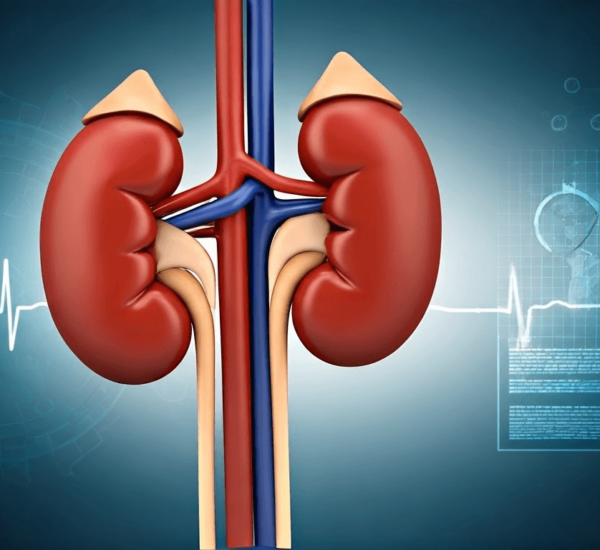Key Highlights
- Kidney disease impacts many women around the world. It often starts with mild symptoms.
- Early signs may be swelling in the legs, back pain, trouble sleeping, and itchy skin.
- Feeling tired, changes in how you urinate, and high blood pressure are also signs to see a doctor.
- Hormonal changes can affect kidney function. This makes women more vulnerable during pregnancy and menopause.
- Finding kidney disease early can lead to better treatment outcomes. Don’t wait to talk to your doctor about your worries.
Introduction
Kidney disease affects many people, but its early signs may not be easy to notice, especially in women. The only way to learn how this disease shows up differently in women is to recognize the symptoms. This blog post looks at both the subtle and obvious symptoms of kidney disease in females. It highlights how important early detection is for keeping kidneys healthy for a long time. We will also talk about certain risk factors for women, ways to diagnose kidney disease, and good strategies for treatment and prevention.
Key Symptoms of Kidney Disease in Women to Be Aware Of
It is important to spot the early signs of kidney disease, including noticeable symptoms, as highlighted by the National Kidney Foundation, so you can get help quickly. Some symptoms might mean other health problems, but having several symptoms means you should talk to your doctor about any medical condition. This is especially true if you have conditions like diabetes or a family history of kidney disease.
Here are seven common symptoms of kidney disease in women:
1. Swelling in Ankles and Feet
One of the first signs of kidney disease is swelling in your ankles, feet, or face. This swelling is called edema. It happens when your kidneys are not working well. Instead of taking out extra fluid and waste from your body, the fluid builds up in your tissues, which causes noticeable puffiness and potential weight loss.
Healthy kidneys, which are about the size of your fist, filter waste and extra water from the blood, playing a critical role in supporting your immune system. But when kidney function is not good, this filtering does not work well. As a result, too much fluid collects in the body, often causing swelling in the limbs. This shows that the kidneys are having a hard time doing their job.
If you see swelling that doesn’t go away or gets worse, you should see a doctor for a check-up. This is especially important if you also feel tired or notice changes in how you urinate. Finding kidney disease early can lead to better treatment and care.
2. Lower Back Pain
Lower back pain is a common problem that can have many causes. If you feel pain in the lower back or sides, it may be a sign of kidney issues. This is especially true if the pain doesn’t go away with regular treatment.
The pain can come from different things. For example, kidney stones can block the urinary tract. Infections can cause swelling. Also, kidneys can enlarge due to certain diseases. These issues can push on nearby tissues and nerves, causing pain.
Kidney damage is a serious problem that can occur if acute kidney injury or kidney disease is not treated. This type of damage can also cause back pain. If you have severe or ongoing pain, or if you notice symptoms like blood in your urine or a fever, it’s important to see a doctor right away.
3. Difficulty Sleeping
Another symptom of kidney disease that many people do not know about is trouble sleeping. When your kidneys are not working well, waste products can build up in your blood. This buildup can make it hard to fall asleep and also stay asleep.
Kidneys help filter waste products from the blood. If kidney function is low, toxins increase in the blood. This can upset the sleep-wake cycle in your body. As a result, it can lead to problems like insomnia or restless sleep.
Kidney disease can also cause restless leg syndrome (RLS). This condition makes you feel like you need to move your legs, especially at night. This uncomfortable feeling can make it even harder to sleep well. Taking care of your kidney health is very important for good sleep and your overall well-being.
4. Itching
Itchy skin, which doctors call pruritus, is a common sign of kidney disease. Many people ignore it as just a small skin problem. However, if you have long-lasting and serious itching, especially if it affects a large area, it could mean you have kidney issues.
When kidneys fail to filter waste properly, these toxins can build up in your blood. This condition is known as uremia. Uremia can cause several symptoms, such as dry and itchy skin. The waste buildup disrupts the balance in your body, which can hurt your skin.
As kidney disease gets worse and leads to advanced kidney disease and renal failure, the itching is likely to increase. Your skin might also start to look dry or discolored, with a yellow shade. If you have ongoing itching and other signs, such as feeling tired or changes in how you urinate, you should see your doctor. This will help rule out kidney disease.
5. Persistent Fatigue
Feeling tired and worn out all the time, even after sleeping well, could mean there is a problem with your kidneys. Healthy kidneys make a hormone called erythropoietin. This hormone tells the bone marrow to create red blood cells. Red blood cells help carry oxygen in the body, which gives you energy.
When someone has kidney disease, the kidneys have trouble making enough erythropoietin. This leads to fewer red blood cells, which is called anemia. Anemia means less oxygen in the blood, causing ongoing tiredness and weakness.
When your body doesn’t get enough oxygen, your muscles and organs, including your brain, can’t work well. This makes you feel tired. If you are feeling tired all the time, and rest does not help, you should talk to your doctor.
6. High Blood Pressure
High blood pressure can lead to kidney disease, and it is also a common sign of this problem. This connection shows why you should check your blood pressure often.
The kidneys are very important for controlling blood pressure. They help clean waste products and extra fluid from the blood. This cleaning helps keep the right fluid balance, which affects blood pressure. If the kidneys are hurt, they can’t balance fluids well, and this can cause blood pressure to rise.
In addition, damaged kidneys might give off hormones that tighten blood vessels, raising blood pressure even more. If blood pressure stays high and is not managed, it can harm the kidneys more, making the problem worse. That’s why it’s so important to control blood pressure to protect kidney function and support good heart health.
7. Changes in Urination Patterns
Changes in how you urinate should be taken seriously. This includes going more often, especially at night, seeing foamy urine, having trouble urinating, or noticing blood in your urine. These signs can come from different causes but might also point to kidney issues.
Healthy kidneys make urine that is usually clear or light yellow. If the kidneys aren’t working well, urine can look different. More protein can make urine foamy. Finding blood in your urine can be scary. It might mean you have a urinary tract infection, but it could also signal a more serious kidney problem.
Urine tests are an important part of checking kidney function. They can find unusual substances in your urine and help you know about your kidney health. If you see any ongoing changes in how you urinate, it’s best to talk to your doctor for a proper diagnosis and treatment.
Understanding the Impact of Kidney Disease on Female Health
Kidney disease can greatly affect women’s health because the body’s systems are connected. Changes in hormones and special processes like menstruation and pregnancy can change how the kidneys work and how the disease gets worse in women.
It’s important for women to understand these connections. This knowledge helps them make better choices about their health, especially in managing current problems and spotting possible risks.
How Kidney Disease Affects Pregnancy and Menstruation
Kidney disease and its treatments can change a woman’s hormonal balance. This often causes problems with her periods and can affect her ability to have children. When a woman is pregnant, her kidneys work harder. They filter waste products for both the mom and the growing baby.
Women who already have kidney disease take on more risks during pregnancy. They may face issues like high blood pressure, preeclampsia, or having the baby too early. It is very important for women with kidney disease to get regular check-ups. They should also work closely with their doctors if they are pregnant or plan to be.
Keeping a close eye on both the mother and baby during pregnancy can help lower risks. This way, they can have the best results possible.
The Role of Hormones in Kidney Function
The link between hormones and kidney function is complicated and can greatly affect women’s health. Estrogen, an important hormone for women’s reproductive health, can affect how the kidneys work. Some studies show that estrogen might help slow down kidney disease, especially before menopause.
However, we do not completely understand how hormones relate to kidney disease. More research is needed to learn about the long-term effects of these hormone changes.
During menopause, hormonal changes can also affect the kidneys. Lower estrogen levels during this time might raise the chances of getting some kidney problems. It is important for women to know about these hormonal effects and to talk to their doctors about any worries.
Risk Factors for Kidney Disease in Females
Kidney disease can affect anyone, but women face certain risk factors that make them more at risk. Some of these factors are due to how women’s bodies work. Others relate to their lifestyle and health conditions.
It’s important for women to understand these risks. Being aware can help them take steps for prevention and early detection. This can really improve their chances of keeping their kidneys healthy for a long time.
Family History and Genetic Predisposition
If kidney disease runs in your family, your chance of getting it is much higher. Genes are important for how kidney disease develops. Some genes can make you more likely to have kidney issues.
A good example is polycystic kidney disease (PKD). This disease causes cysts to grow in the kidneys and is often passed down in families. If one parent has PKD, there is a 50% chance that their child will inherit the gene that causes it.
Knowing your family history with kidney disease is very important for early detection and keeping good kidney health. If you have a family member with kidney disease, talk to your doctor about having regular tests to check your kidney health.
Lifestyle Choices and Their Impact on Kidney Health
Maintaining a healthy lifestyle is very important for keeping your kidneys healthy and stopping kidney disease. Some lifestyle choices can greatly affect your kidney health. Making good changes can lead to better kidneys.
For instance, drinking too much alcohol and smoking can hurt your kidneys over time. Quitting smoking is one of the best things you can do for your overall health, and it helps your kidneys too.
It is also important to keep a healthy weight and control issues like high blood pressure and diabetes as part of your overall treatment plan. If you do not manage these problems, your risk of getting kidney disease goes up. Additionally, be cautious with certain pain medicines that may affect your kidney health. Eating a balanced diet, including a special diet that is low in salt and processed foods, can also help keep your blood pressure in check and support good kidney function.
Diagnostic Approaches for Kidney Disease
Early diagnosis of kidney disease is very important. It helps with managing the condition and stopping more harm from happening. There are different tests to check kidney function and find any issues.
These tests can be as simple as urine analysis or more complex like blood tests and imaging scans. Knowing about these tests can help people get medical help on time if they need it.
Urine Tests and What They Reveal
Urine tests are usually the first way to check for kidney disease. They are simple and painless and help doctors see how well your kidneys are working. Checking the urine can show problems that might mean there are kidney issues.
One key thing tested in urine is the level of protein. Healthy kidneys should keep protein in the blood and get rid of waste. If the kidneys are damaged, they might let protein escape into the urine. This can be called proteinuria and is a warning sign for kidney disease.
There are other issues urine tests can find too, like blood (hematuria) and white blood cells (leukocytes) in the urine. These may point to infections, swelling, or other kidney or urinary problems. Odd color or smell in urine can also hint at issues with kidney health.
Blood Tests and Their Significance
Blood tests provide another way to check how well the kidneys are working. Unlike urine tests, which mainly look at waste products that the kidneys get rid of, blood tests check substances that build up in the blood when the kidneys are not doing their job well.
One important substance tested in blood tests is creatinine. This is a waste product made when muscles use energy. Healthy kidneys remove creatinine from the blood effectively. However, if the kidneys are not working properly, creatinine levels in the blood go up. Another important substance is blood urea nitrogen (BUN), which is made in the liver.
High levels of creatinine and BUN, especially together, can show there may be a kidney problem. By comparing these levels to normal ranges, doctors can tell how bad the kidney issue is and decide on the best treatment.
Imaging Tests Used in Diagnosing Kidney Issues
Imaging tests play a crucial role in diagnosing kidney issues. Techniques like ultrasound, CT scans, and MRIs provide detailed insights into the structure and function of the kidneys. In addition to these imaging tests, a kidney biopsy may be performed where tissue from your kidney is sent to a lab for testing. These tests help identify abnormalities such as tumors, cysts, or obstructions that impact kidney health. By visualizing the kidneys and surrounding areas, healthcare professionals can accurately assess the condition and plan an appropriate treatment regimen, ensuring timely interventions for better patient outcomes. Utilizing advanced imaging technologies is essential for a comprehensive evaluation of kidney health and addressing potential complications.
Treatment Options for Kidney Disease
The way we treat kidney disease can change a lot based on what causes it and how advanced it is. Treatment can include managing problems that help the disease get worse or using more serious methods like dialysis or transplants.
Finding the disease early can lead to easier treatment options. This highlights the importance of being aware and getting regular health checkups.
Medication Management for Kidney Disease
Medications are often given to help manage symptoms, slow down the progress of chronic kidney disease (CKD), and reduce the risk of complications. These drugs target different problems related to CKD. They aim to make life better for people with this condition.
One type of medication that doctors commonly prescribe is called angiotensin-converting enzyme (ACE) inhibitors, or angiotensin II receptor blockers (ARBs). These medications help relax blood vessels. This action lowers blood pressure and eases the strain on the kidneys.
Other types of medications can include diuretics. Diuretics help remove extra fluid from the body. There are also phosphate binders to keep phosphorus levels in the blood under control. Furthermore, supplements like vitamin D and calcium are used to support bone health, which CKD can affect.
Dialysis: Types and What to Expect
Dialysis is a treatment that helps people whose kidneys do not function well. This condition is called end-stage renal disease (ESRD). The process filters the blood to remove waste products and extra fluid since the kidneys cannot do it anymore.
There are two main kinds of dialysis: hemodialysis and peritoneal dialysis. Hemodialysis uses a machine to clean the blood outside the body. This usually happens at a dialysis center three times a week. Peritoneal dialysis, however, uses the lining of the belly (called the peritoneum) to filter the blood.
In peritoneal dialysis, a special fluid called dialysate is put into the belly area. This fluid helps take out waste products and extra fluid. After some time, the dialysate is drained and replaced with fresh fluid. The choice of which type of dialysis to use depends on what the patient needs, their lifestyle, and any medical issues they may have.
The Role of Kidney Transplantation
Kidney transplantation can help people with end-stage renal disease. It replaces a sick kidney with a healthy one from a donor. This is a big surgery, but it can improve the quality of life and extend life for those with kidney failure.
A suitable kidney can come from two types of donors. It can come from a deceased donor or from a living donor, who is often a family member or close friend. Finding the right match is important to lower the risk of rejection. People who receive a transplant need to take immunosuppressant medicines for a long time to stop their bodies from rejecting the new kidney.
Transplant surgery brings hope for many people. However, there are not enough organs for everyone who needs one. The waiting time for a kidney from a deceased donor can be very long. Living donation is another option, but it requires surgery and can carry some risks for the donor.
Preventative Measures to Protect Kidney Health
Taking care of your kidney health is important for your overall well-being. Some things, like genetics, are not in our control. However, taking steps to manage your health can greatly lower your chances of getting kidney disease.
Making changes to your lifestyle and being proactive about your health can help keep your kidney function strong. Small but effective changes can help you keep your kidneys healthy for a long time.
Diet and Nutrition for Healthy Kidneys
The food we eat is very important for our health, including our kidneys. Eating a diet that is good for the kidneys can help them work better and slow down kidney disease.
A diet that has a lot of fruits, vegetables, and whole grains gives our bodies important nutrients while keeping stress off the kidneys. It is also important to limit processed foods, salt, and saturated fats. This helps keep blood pressure healthy and lowers the risk of kidney damage.
Drinking enough water is necessary for the kidneys to work their best. Water helps remove waste products from our bodies and stops dehydration, which can hurt the kidneys. One of the important jobs of water is to help the kidneys by trying to drink at least eight glasses of water each day, but adjust it based on your needs and how active you are.
Importance of Regular Exercise and Activity
Regular exercise has many health benefits. It helps your heart, keeps a healthy weight, and makes you feel happier. For people with kidney disease or at risk of it, exercise is important.
Physical activity helps control blood pressure. This is crucial for kidney health. Good blood pressure reduces stress on the kidneys and helps them work better. Exercise also helps manage blood sugar levels. This is vital for people with diabetes, which can lead to kidney disease.
Try to do at least 30 minutes of moderate exercise most days of the week. This can greatly help your kidney health. Pick activities you enjoy. Also, talk to your doctor to find an exercise plan that fits your health and any medical issues you have.
Conclusion
In conclusion, knowing the symptoms of kidney disease in females is important. It helps with early detection and treatment. Signs like swelling in the ankles and feet or changes in urination can lead to better health. Understanding how kidney disease affects female health is key. It’s also important to think about risk factors, diagnosis, treatment options, and prevention for good kidney health. Regular check-ups, a balanced diet, exercise, and changes in lifestyle are all essential for keeping kidney function strong. Stay updated, take care of your health, and get medical help if you see any worrying signs. Your health matters most.
Frequently Asked Questions
What are the early warning signs of kidney disease in females?
Early signs of kidney disease in women can be hard to notice. Common symptoms are feeling tired, swelling in the feet and ankles, changes in how often you urinate, and constant itching. If you notice any of these, be sure to talk to your doctor.
How does kidney disease progression differ in women compared to men?
Kidney disease can progress differently for men and women. Women usually develop chronic kidney disease more slowly. However, they also have a higher risk of quick progression when it gets to a severe stage.
Can lifestyle changes reverse kidney disease?
Lifestyle changes by themselves may not fix kidney disease, but they can help slow it down and stop more damage from happening. Living healthily is very important for dealing with this condition.
What does it feel like when your kidneys are struggling?
In the early stages, you may not feel anything unusual when your kidneys are having problems. As the issue gets worse, you could start to feel tired, have back pain, find it hard to breathe, and notice changes in how you urinate.
What happens when your kidney function is low?
When kidney function is low, waste products and extra fluids build up in the body. This can cause various symptoms. If kidney function gets very bad, a person may need dialysis or a kidney transplant to stay alive.







